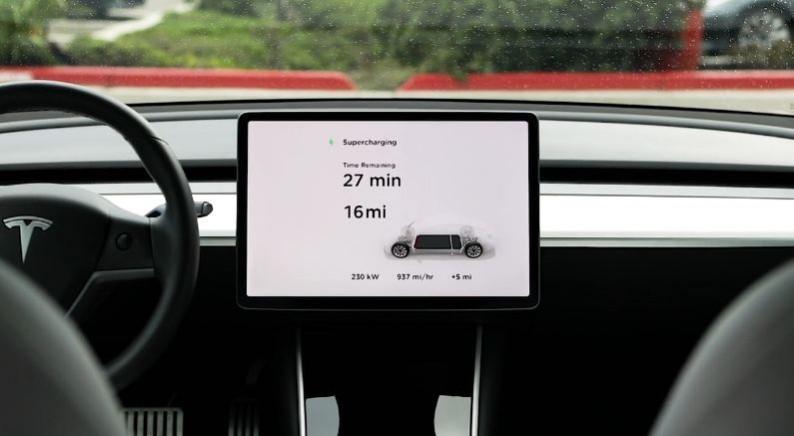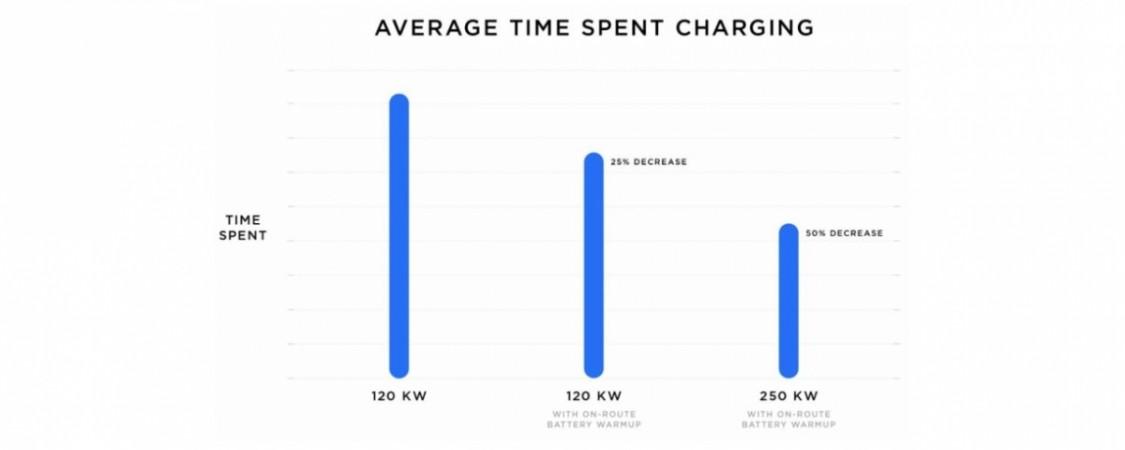Elon Musk-owned electronic carmaker Tesla launched the company ambitious third generation Supercharger station V3 series in the US.
Tesla, which proclaims to build world's largest grid-connected batteries, has developed new technology to increase the speed of the car charging and with V3 Supercharger stations, Tesla customers, particularly owning Model 3-series will now be able to power up their cars at the peak rates of up to 250kW, meaning just 5 minutes of charging will be enough for the Model 3 Long Range to drive 75 miles (or 120.7 KMs).
Apparently, it charges at rates of up to 1,000 miles per hour. This superfast charging will reduce the wait for a full recharge of a car by a 50-per cent; this is a huge time saver for people on the long inter-state drive.
The company plans to increase the charging speeds of Model S and X via software updates in the coming months.

"V3 Supercharging will roll out to the wider fleet in an over the air firmware update to all owners in Q2 as more V3 Superchargers come online. Our first non-beta V3 Supercharger site will break ground next month, with North American sites ramping in Q2 and Q3 before coming to Europe and Asia-Pacific in Q4," Tesla said in a statement.
That's not all, Tesla, in a bid to further decrease the average time spent on charging station, will release a software update with 'On-Route Battery Warmup' feature to its cars.
Once update, if the Tesla car owner is on its way to the nearest Supercharger stations, the vehicle will intelligently heat the battery. This will ensure the automobile's cell is at the optimal temperature to charge, reducing average charge times for the owners by 25-percent.

For now, Tesla has opened the one public beta V3 Supercharger in Fremont, California. It has plans to bump up the charge rates at more than 12,000 V2 Superchargers from 125kW to 145kW in coming weeks.
With such measures, Elon Musk is doing a commendable job to improve the user experience of the existing customer base, but also attract more people to embrace electric automobile solutions over conventional vehicles, which run fossil fuel and hurt the ecological balance of the planet earth.














